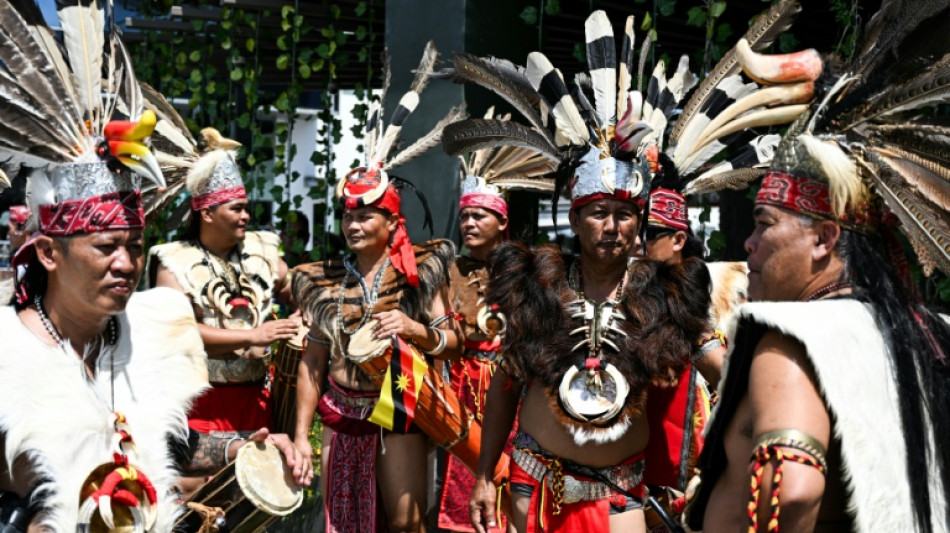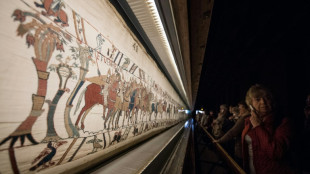

Malaysia's Dayaks mark rice harvest end with colourful parade
Dressed in colourful costumes, some sporting feathered headgear and traditional swords, several thousand of Malaysia's ethnic Dayak people paraded in the streets of Sarawak state on Borneo island Saturday to celebrate the ending of the rice harvest season.
The Gawai Dayak 2025 Parade in state capital Kuching is the only annual gathering by representatives of around 11 of Sarawak's main Dayak groups -- which participants said helps to keep alive a unique part of the Southeast Asian nation's culture.
Marchers gathered from early Saturday under the blistering tropical sun, many of them travelling long distances by bus to walk in the parade along the banks of the Sarawak River.
"This gathering is something that is very important to me," said Joel Zacchaeus Anak Ebi, sporting the traditional Iban headgear worn by one of Borneo's best-known tribes.
People "must know and realise that Sarawak has traditions and cultures that must be preserved," he told AFP ahead of the march, which was also attended by Sarawak Premier Abang Johari Tun Openg.
"A day like this brings our people together, especially the younger people, who can easily lose touch with their roots when they move away from Sarawak," said Dayak village elder Ngindang Rambo, 61.
Watching the parade, Masha Timosha, 34, a tour guide from Russia, said she was amazed by the costumes and atmosphere.
"This is just very impressive. I even have my own Sarawakian costume but I didn't put it on," she told AFP.
Malaysia's Dayak people are mainly riverine and hill-dwelling, made up of dozens of ethnic groups, each with their own distinct dialect, customs, laws and practices.
Dayak communities however have become increasingly under threat from encroaching palm oil forestry and industrial logging, human rights groups and Indigenous groups have said.
Many Indigenous communities in Sarawak face challenges in accessing basic services, Human Rights Watch said in a statement last month, including access to running water, electricity and land titles.
Local groups and international observers have also called on the government to "urgently legislate Indigenous customs and traditions through which Indigenous people have acquired rights to their lands, territories and resources," the Sarawak Dayak Iban Association (Sadia) said last year.
Rainforest-clad Borneo is the world's third-largest island and is shared between Malaysia, Indonesia and Brunei.
O.Olivares--ECdLR






